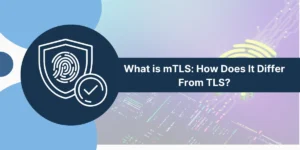Generating a Certificate Signing Request on NGINX Server
Generating a Certificate Signing Request (CSR) on NGINX server is a critical security step for SSL/TLS certificate implementation. A CSR on the NGINX server helps create a secure connection between your web server and visitors’ browsers. The process requires specific commands and proper configuration of server details to ensure accurate certificate generation. You must input your organization’s information, including domain name, company details, and location.
This guide explains how to generate a CSR, validate the request, and prepare it for submission to a Certificate Authority (CA). These instructions will help you secure your NGINX server with proper SSL/TLS certification.
Prerequisites Before Generation CSR on NGINX Web Server
Before generating the CSR, make sure that:
- NGINX is installed on the server.
- OpenSSL is installed on the server. This usually comes pre-installed on most operating systems.
- You have root access to the server.
- You know the domain name for which you want to generate the CSR.
5 Easy Steps to Generate a CSR on the NGINX Server
- Create the Directory Structure
- Generate the Private Key
- Generate the CSR
- Submit the CSR to the CA
- Configure NGINX to Use SSL Certificate
Step 1: Create the Directory Structure
First, create a directory where you will store the keys:
mkdir -p /etc/nginx/ssl
This will create a directory called ssl inside /etc/nginx.
Step 2: Generate the Private Key
The CSR requires a private key. Generate the private key with this command:
openssl genrsa -des3 -out /etc/nginx/ssl/server.key 2048
This will create a 2048-bit RSA private key protected with triple DES encryption.
You will be prompted to enter a passphrase to secure the private key. Remember this passphrase, as you will need it while generating the CSR.
Step 3: Generate the CSR
With the private key generated, you can now create the CSR.
Run this command to generate the CSR:
openssl req -new -key /etc/nginx/ssl/server.key -out /etc/nginx/ssl/server.csr
Enter the details when prompted. The important ones are:
- Common Name: Enter your domain name or public IP here.
- Country Name: The 2-letter ISO code of your country.
- State or Province: The full name of your state or province.
- Locality Name: The city where your organization is located.
- Organization Name: The registered name of your company.
- Organizational Unit: The division or department in your organization.
When it asks for a challenge password, leave it blank and press enter.
This will generate a CSR with your private key and details at /etc/nginx/ssl/server.csr
Step 4: Submit the CSR to the CA
The server. csr file can now be submitted to a Certificate Authority like Comodo, DigiCert, GoDaddy etc. to obtain the SSL certificate.
Follow the instructions on the CA website to paste your CSR when prompted and submit it.
Once approved, you will get the SSL certificate. Save this certificate and intermediate certificate files from the CA on your server.
Step 5: Configure NGINX to Use SSL Certificate
To configure NGINX to use the SSL certificate:
- Place the certificate file from CA as /etc/nginx/ssl/certificate.crt
- Place the intermediate certificate file from CA as /etc/nginx/ssl/intermediate.crt
- Edit /etc/nginx/nginx.conf and add these lines in the HTTP section:
server {
listen 443 ssl;
server_name yourdomain.com;
ssl_certificate /etc/nginx/ssl/certificate.crt;
ssl_certificate_key /etc/nginx/ssl/server.key;
ssl_trusted_certificate /etc/nginx/ssl/intermediate.crt;
}- Restart NGINX.
This will enable the new certificate on your website to be served using NGINX.
And that’s it! You have successfully generated a CSR on your NGINX server and configured HTTPS. Your website is now secure with SSL encryption.
Final Thoughts
A CSR (Certificate Signing Request) on NGINX serves as an essential security measure for website encryption. System administrators can generate CSRs to obtain SSL certificates from trusted authorities. The process helps websites establish secure connections with users.
Following the correct steps for CSR generation prevents security vulnerabilities and ensures proper SSL implementation. Administrators must maintain their certificates and keep track of expiration dates. Regular certificate updates protect user data and maintain website security standards.
The CSR generation process requires attention to detail and accurate server information. Website owners can build trust with visitors through proper SSL certificate implementation. This security measure supports data protection and meets modern web security requirements. NGINX servers with valid SSL certificates provide reliable and secure web hosting solutions.
Frequently Asked Questions (FAQs)
Here are some common questions about generating CSR on NGINX:
What is a CSR in NGINX Server?
A CSR (Certificate Signing Request) is a file containing server and company information. The file is submitted to a Certificate Authority to obtain an SSL certificate.
What command generates a CSR on NGINX?
Use this command: openssl req -new -newkey rsa:2048 -nodes -keyout server.key -out server.csr
This creates both a private key (server.key) and CSR file (server.csr).
What information do I need to generate a CSR?
You need your organization’s name, location, domain name, and email address. The Common Name must match your website’s domain name exactly.
Where should I store CSR files on NGINX?
Store CSR files in the /etc/nginx/ssl/ directory. Create this directory if it doesn’t exist using: mkdir /etc/nginx/ssl/
How do I verify my CSR is correct?
Use the OpenSSL command: openssl req -text -noout -verify -in server.csr
This shows all CSR information and confirms its validity.
What is the standard key size for NGINX CSR?
The recommended key size is 2048 bits. This provides good security without impacting server performance significantly.

Priya Mervana
 Verified Web Security Experts
Verified Web Security Experts
Priya Mervana is working at SSLInsights.com as a web security expert with over 10 years of experience writing about encryption, SSL certificates, and online privacy. She aims to make complex security topics easily understandable for everyday internet users.



